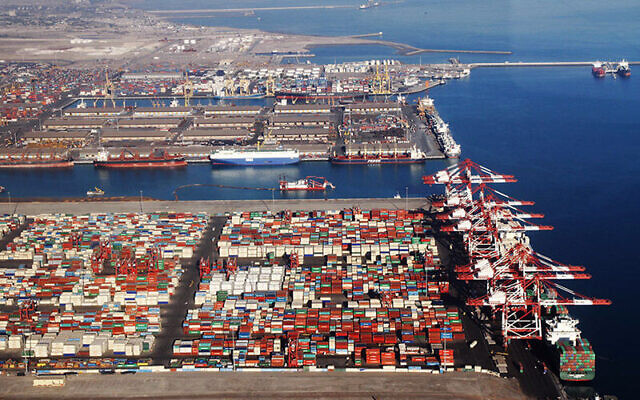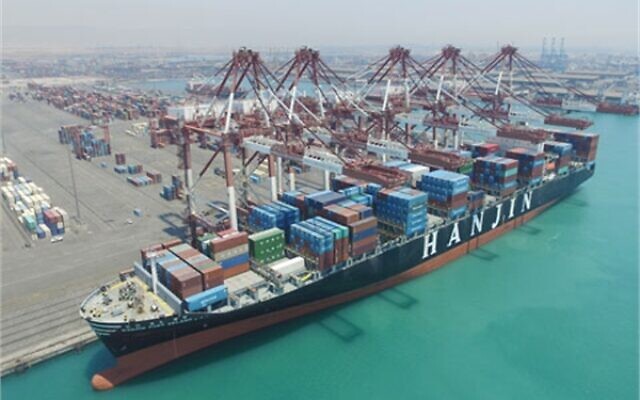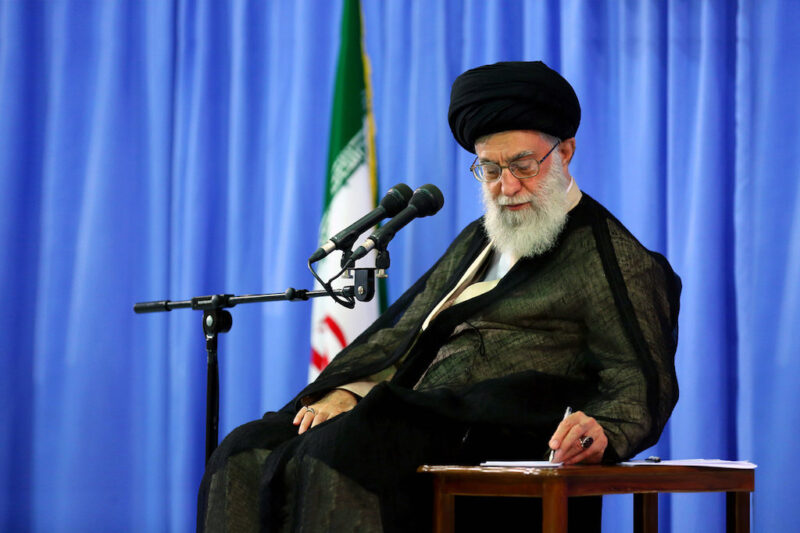Just days after the Israeli media reported earlier this month that Iranian military forces were being withdrawn from Syria, Israelis learned that Iran had sprung a nasty surprise on Israel.
Iran, Israel’s most formidable enemy, had launched a cyberattack on Israel’s water and sewage facilities. Channel 12 broke the news on May 9, but the actual Iranian hack took place on April 24-25.
Iran’s attack, along with noxious comments by its supreme leader calling yet again for Israel’s destruction, spoke volumes about its malevolent intentions toward Israel.
It was indicative of the fact that the Iranian regime is utterly dedicated to wiping out Israel despite the coronavirus pandemic, which has ravaged the country, and despite the campaign of “maximum pressure” waged by the United States against Iran, which has crippled its economy.
Iran’s cyber breach of Israel’s water command and control systems caused only minor damage, but it set off alarm bells in the Israeli government because Iran had crossed a red line by having targeted a critical component of Israel’s civil infrastructure.
The attack can be taken as a warning that, in a war or major skirmish with Israel, Iran would not hesitate to hit below the belt.

To no one’s surprise, Israel responded forcefully to Iranian aggression. On May 9, Israel launched a cyberattack on the Iranian port of Shahid Rajaee, through which 60 percent of Iran’s trade passes to or from the Strait of Hormuz and which houses its most important naval base.
Israel’s retaliatory strike, designed to be limited in scope, led to delays in shipments and traffic jams, prompting observers to speculate that the real point of the reprisal was psychological rather than strategic.

Israel’s unmistakable message was that its cyber capabilities are among the most advanced in the world and that further Iranian attempts to sabotage its infrastructure would be far more costly to Iran.
The exchange of cyberattacks brought back memories of Operation Olympic Games, a joint Israeli-U.S. campaign of cyberwarfare, unprecedented in its sophistication, directed against Iran’s nuclear facilities.
A malware agent, known as Stuxnet, was secretly inserted into the Natanz uranium enrichment facility, resulting in the destruction of over 1,000 centrifuges. By all accounts, Stuxnet set back Iran’s nuclear progress by at least a year.
In a subsequent operation reportedly conducted solely by Israel, two malware agents, Wiper and Flame, disabled the computers of Iran’s Ministry of Petroleum and the National Iranian Oil Company.

After Israel’s attack on Shahid Rajaee, General Aviv Kochavi, the chief of staff of the Israeli armed forces, said, “We will continue to use a diverse array of military tools and unique warfare methods to hurt the enemy.”
In spite Kochavi’s warning, unidentified hackers in the Middle East who may or may not have ties to Iran broke into 300 commercial, municipal and personal websites in Israel on May 21.
The hackers left a malicious video of Tel Aviv burning and an image of Prime Minister Benjamin Netanyahu, his face bloodied, swimming away from the carnage.

The video also displayed two headlines in English and Hebrew: “Be ready for a big surprise” and “The countdown of Israel’s destruction has begun since a long time ago.”
It ended with a message in Hebrew: “Israel won’t survive the next 25 years.”
In the wake of this incident, Iran’s supreme leader, Ayatollah Ali Khamenei, displayed a colorful poster on his website showing a group of people in a celebratory mood at the Temple Mount in East Jerusalem. The text on the poster read, “Palestine will be free. The final solution. Resistance until freedom.”

The reference to the “final solution,” a clinical phrase employed by Nazi Germany to describe the Holocaust, was denounced by, among others, the European Union and the United States.
The denunciation prompted Khamenei to deny that he had advocated the genocide of Israel’s Jewish population. “Eliminating the Zionist regime doesn’t mean eliminating Jews,” he said. “We will support and assist any nation or any group anywhere who opposes and fights the Zionist regime, and we do not hesitate to say this.”

True to his words, Khamenei tore into Israel on Quds Day, which fell on May 22. He lambasted the establishment of Israel as a “crime against humanity” and likened Zionism to a “virus” that must “be eliminated as soon as possible.”
Once again, Iran has made it abundantly clear that one of its principled objectives is the destruction of Israel.
